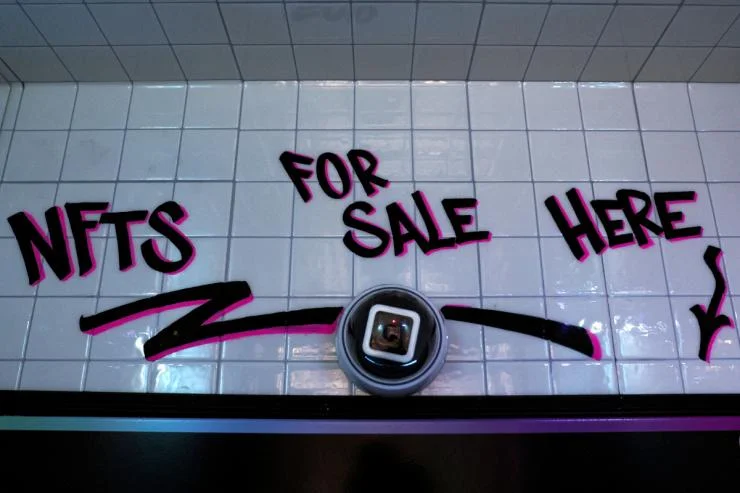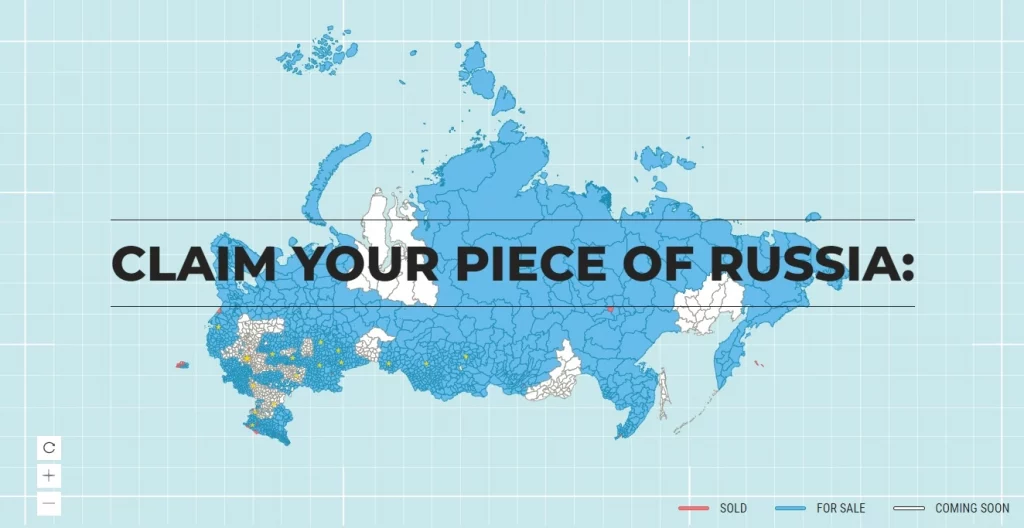In the form of NFTs, a tech innovation firm based in Georgia’s capital Tbilisi is now “selling Russia piece by piece.” The proceeds from the collectibles, which depict nearly 2,500 Russian regions, will be used to aid in the reconstruction of Ukraine.

Leavingstone, a Georgian digital creative agency, has joined efforts to raise funds for Ukraine, which has been defending itself against Russian military aggression for eight weeks. The company is now selling non-fungible tokens (NFTs) that represent different parts of Russia.
Leavingstone is auctioning off 2,443 regions of the Russian Federation depicted on playing cards with name, size, and a “weirdly authentic coat of arms” in the first of three planned phases of the ‘Russia for Sale’ initiative. An interactive map shows potential buyers the parcels, and with 34 already sold, over $19,000 in ether has been accumulated.

“We saw a lot of potential in it,” Leavingstone co-founder Levan Lefsveridze told Radio Free Europe’s Georgian service. “The majority of people would want to be involved in Russia’s partition,” he added, clearly attempting to troll Russian President Vladimir Putin and his government, who have threatened to punish anyone who calls for Russia’s territorial integrity to be violated.
During the next stage of the sale, the Georgian agency will offer NFTs of Russian landmarks such as the Kremlin, the Ostankino TV Tower in Moscow, Putin’s winter palace, and home, which is estimated to be worth $1 billion, and a bunker. “If you like Khrushchyovka architecture’s post-soviet aesthetic, you’ll like it,” organizers tease investors.
They promise that the third sale will be a big one. “We’re going to auction off Lenin himself.” Yep. The project’s website promises, “Stuffed Granddaddy of the Red Revolution will be up for sale!” Its operators emphasize that all proceeds will be used to help Ukraine.
The Ministry of Digital Transformation in Kyiv is the primary beneficiary, and all funds collected will be transferred to its wallet. Among other things, the department is in charge of Ukraine’s cyber defense, which is another front in the conflict with Russia.
Since Moscow launched its military assault in the early hours of February 24, Ukrainian government institutions and volunteer groups have received tens of millions of dollars in cryptocurrency donations. The funds will be used to support Ukraine’s defense efforts as well as to address the country’s mounting humanitarian issues.
The Russian invasion of Ukraine came eight years after Russia annexed Crimea and supported pro-Russian separatists in the Donbas region. Georgia has also had issues with the same neighbor. Russia backed separatists in Abkhazia in 1992 and then prevented the Georgian government from retaking South Ossetia.
